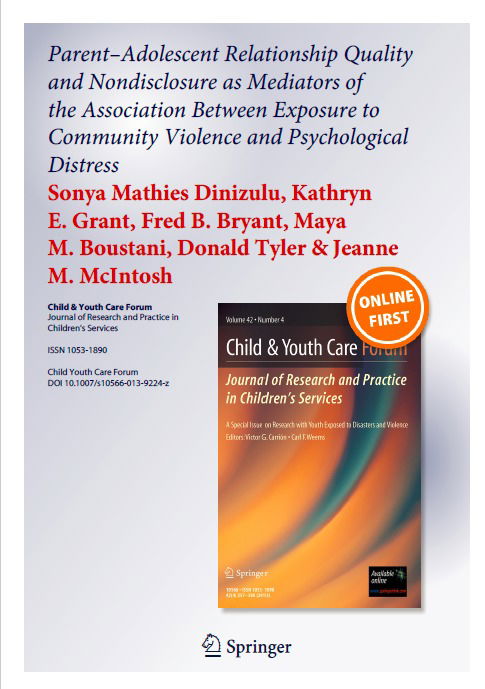Parent-child attachment and nondisclosure as mediators of the effects of exposure to community violence on psychological distress.

Background: African American youth residing in urban poverty have been shown to be at increased risk for exposure to violence and for psychological symptoms, but there has been little investigation of mediating processes that might explain this association.
Objectives: This study tested the quality of parent–adolescent relationships and adolescent nondisclosure to adults as mediating mechanisms through which exposure to community violence may lead to psychological symptoms.
Methods The current study surveyed a sample of 152 low-income urban African American early adolescents (aged 12–14). Participants completed self-report questionnaires assessing exposure to community violence, nondisclosure, parent–adolescent relationship, and psychological symptoms (i.e., internalizing and externalizing symptoms).
Results: Path analyses revealed that parent–adolescent relationship quality and nondisclosure both functioned as mediators of the relation between exposure to community violence and both internalizing and externalizing symptoms, though significant direct effects for violence exposure on externalizing symptoms remained. Decomposition of effects revealed that nondisclosure was a stronger mediator than parent–adolescent relationship quality. Results also indicated that exposure to violence can lead to externalizing (but not internalizing) symptoms first by way of parent–adolescent relationship quality and then nondisclosure.
Conclusions: Combined, these findings suggest that the development of preventive interventions designed to assist adults and parents improve communication and strengthen relationships with adolescents might reduce the negative effects of exposure to community violence on adolescent mental health.
Full text available here: Dinizulu et al (2013) Parent–Adolescent Relationship Quality



